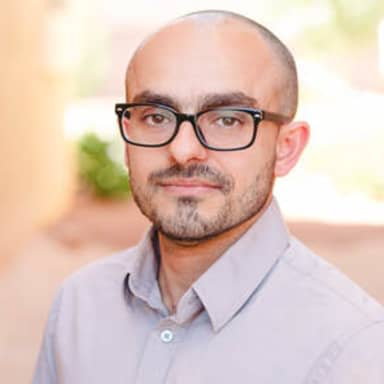Learning to Love My Queer and Trans Identity Through Acceptance
When I think about my identity, a phrase comes to mind that I used to hear over and over in the world of gay dating — “I love you even though you’re trans.”
Upon first hearing that, it brought me some comfort. Some peace of mind, maybe.
But as years went by, I found myself questioning the phrase. You love me even though I’m trans? What does that mean?
While not intended as a hurtful statement (quite the contrary, in fact), I came to realize that this phrase was a thinly veiled disguise for transphobia. Whether consciously or unconsciously, my past lovers saw transness as an “even though” — something they could learn to work around. Once they had, they were happy to pat themselves on the back for their treatment.
I fed right into it. I thanked them for overlooking such a flaw of mine, to have delved past such treacherous waters as my own transness.
Their internalized transphobia became a disguise for my own. “I love you — even though you’re trans” can so easily become “I love myself — even though I’m trans.”
When did my gender identity become the exception in the declaration of my own self-love? To have this mindset was to see my transness as a flaw, something that could be overlooked. And I had — I looked so far into the eyes of a lover that I’d completely overlooked myself.
To see transness as a flaw is to see myself as being inherently flawed. Doing this only reinforces the dominant mindset. Trans people become more acceptable when we can “pass” — when we can appear as cisgendered as possible.
If overlooking myself meant looking into the eyes of another, I began to see what they wanted to see. The more I could erase my trans-ness, the more I could be loved, I thought. To be trans is to hide, to run adjacent to cisgendered people. Being “normal.” Being a “good” trans person.
So I tried that. And wouldn’t you know it, the funniest thing happened: It didn’t work.
I was miserable. I had never felt less like myself. I spent all my time trying to squish myself into an invisible, intangible box. I forgot who I even wanted to be.
So began a long process of unlearning and relearning how to love myself — no “even though” required. By the end of it all, I realized it never should have been there to begin with.
I had allowed my transness to become a negative that I needed someone to accept. A lot of it came down to sex — the verb and the adjective. In my experience in the gay community, there is a huge focus on the term in both forms. There is a distinct level of transphobia in the dating scene, whether it comes from misinformation, confusion, or just plain disregard.
The issue that I (and many other young transmasculine queer people) face is attributing the disrespect of others to my own “fault” of transness. It is a painful thing to learn from others, and a difficult thing to unlearn for yourself.
When we talk about self-acceptance, we often discuss the importance of loving your flaws. What I think needs to be clarified, especially in the minds of young people, is what constitutes a negative attribute vs. an attribute that society marks as worthy of shame.
As an adult, this relearning process was sparked by the influence of others. Specifically, others who were further along the path.
I cannot emphasize enough the power of representation. In every aspect of my own queer experience, I have been fueled either by the influence of other people or my desire to influence others in the same way.
When I saw other trans gay men who did not find their transness as an antithesis to their gayness, it was as if a door had been unlocked for me. Providing queer people of any identity with experiences of positive representation, as well as community, is life-changing.
Reflecting on this as a recent college graduate, I realize how spaces that encourage this kind of community are so necessary. Especially in places of higher education, where open dialogue should be encouraged. I was lucky that my school provided ample opportunity for me to work through my identity.
Because of the unique issues that come with intersecting identities, the experience can often feel isolating. However, creating spaces where discussion can be fostered furthers the reality that no one is alone in their experience. Being trans and gay does not mean I am the first person to experience an “even though.” I am one in a long list of many, in my community and in many others. Fostering discussion is the first step to combat negativity and isolation.
I love myself and I love my transness. Everyone should get to say their version of that — no “even though” required.

Meet the Author

I am pursuing my MFA in writing at Vermont College of Fine Arts. As a queer person, I advocate for diversity and equality in all facets of my work. I am an avid collector of stuffed animals and a devoted player of the Nintendo Switch. I live in Eau Claire, Wisconsin, with my partner, Matthew, and my beloved “writer’s cat,” Barry. I earned my bachelor’s in creative writing from the University of Wisconsin-Eau Claire.
Explore More College Resources

Best Colleges for LGBTQ+ Students in 2024
The increased visibility of LGBTQ+ students on campuses has increased the need for support networks. Here are the top-ranked colleges for LGBTQ+ support.

by Cobretti D. Williams, Ph.D.
Updated December 12, 2024


